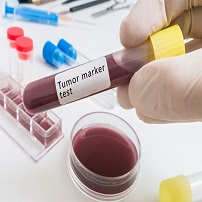 Though a diagnosis of malignant mesothelioma can be devastating, there is good news on the horizon. Recently, scientists in Australia have discovered that a genetic mutation appears to drive the development of certain cancers, including malignant mesothelioma, possibility of a genetic link.
Though a diagnosis of malignant mesothelioma can be devastating, there is good news on the horizon. Recently, scientists in Australia have discovered that a genetic mutation appears to drive the development of certain cancers, including malignant mesothelioma, possibility of a genetic link.
The gene in question is known as p53, or the “guardian of the genome,” as it helps to suppress tumors. In a ground-breaking discovery, these scientists discovered that p53 had been mutated in about half of all cases of human cancers, with many cases of mesothelioma also following suit.
It has been widely known that the primary external cause of mesothelioma is exposure to asbestos. However, p53 helps to demonstrate why some cells that are exposed to asbestos will suddenly become cancerous and spread rapidly.
Though the current prognosis for mesothelioma is usually poor, this new development may help scientists to discover new and improved treatments for it.
Scientists are now fully understanding how genetic changes impact the function of the p53 protein. There are two copies of the p53 gene in each cell. When one of these genes mutates, the p53 protein can bind to the normal p53 protein, which in essence prevents it from carrying out its intended protective roles, such as repairing DNA.
Alternatively, it actually allows p53 to function differently, which promotes the development of tumors.
Mesothelioma experts are now looking into gene therapy in order to stop the spread of these tumors, through the targeting of the mutated genes themselves.
However, gene therapy may prove ineffective, if the mutations primary role is to direct the normal p53, as the tumors may have no normal p53 remaining. This would mean that drugs which block the mutant p53 would have no actual clinical benefit.
However, if the mutant p53 has new, cancer-promoting activities of its own in tumors that have been established, then a drug that serves to block the mutant p53 could prove very beneficial to thousands of individuals currently battling the disease.
This news from Australia serves to reinforce the findings of research conducted in France earlier this year. Scientists in France found that p53 is in fact important in the development of mesothelioma tumors, as is another gene called Cdkn2a.
Though scientists do not know exactly why, p53 mutations have been found to be more common in women battling mesothelioma than in men battling the same.
If you or a loved one has been exposed to asbestos and are suffering from malignant mesothelioma, it can be overwhelming both emotionally and financially. That is why it is so important to find a lawyer who is experienced and knowledgeable. For a free consultation call 215-569-4000 or contact us online today. The Pennsylvania mesothelioma lawyers at Brookman, Rosenberg, Brown & Sandler help clients in Delaware County, Chester County, and Philadelphia County, Pennsylvania, as well as in New Jersey.